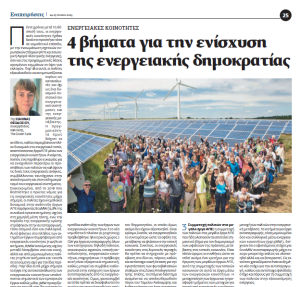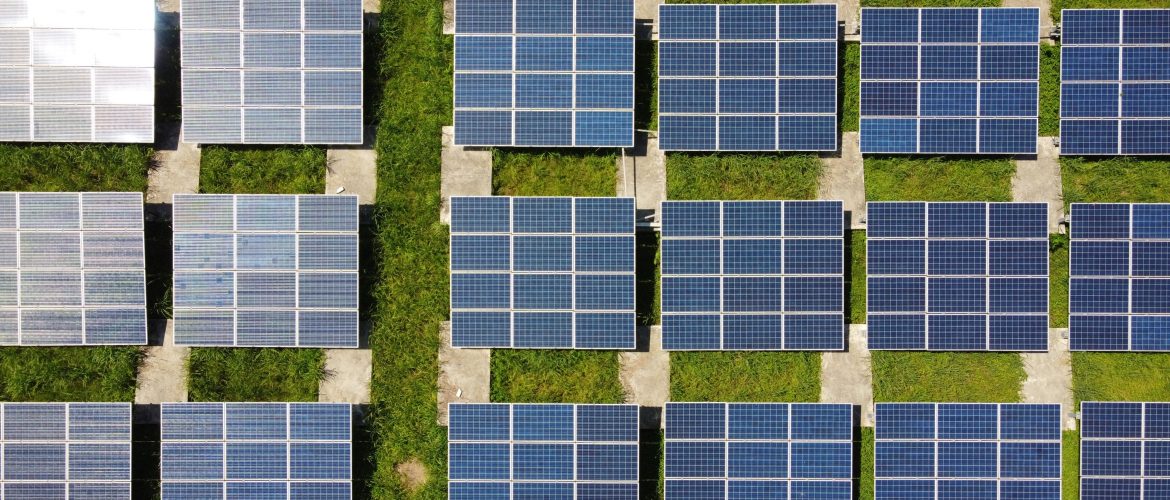In the midst of the energy crisis, energy communities and citizen participation in the use of energy resources to meet own needs turned Greece’s energy transition towards a new, decentralised and more democratic model. Particularly in the country’s lignite regions, citizens’ interest in participating in energy community projects has soared within a year, making the just transition in practice, demanding equal access to the grid and the use of available resources. At the same time, significant steps in legislation have created an adequate framework for strengthening energy communities. However, challenges remain.
Looking forward to the legislative initiatives of the newly elected Greek government, Ioanna Theodosiou, in her article entitled “4 steps to strengthen energy democracy” argues that “the effective safeguarding of an energy model based on citizen participation in the production and use of energy resources” requires four immediate and necessary steps that specifically address:
- grid availability
- resource utilisation,
- participation of citizens in large-scale RES projects,
- the inclusion of concrete, ambitious and quantifiable targets for energy communities in the revised NECP.
She concludes that “citizens will not be confined to the role of energy consumers, but will assert their role in the new energy system that is taking shape even more vigorously. […] In the next four years, the conditions and foundations of a model of energy democracy can be laid, shielding our energy system”.
The article was published in EFSYN – Weekend, on June 24, 2023.



